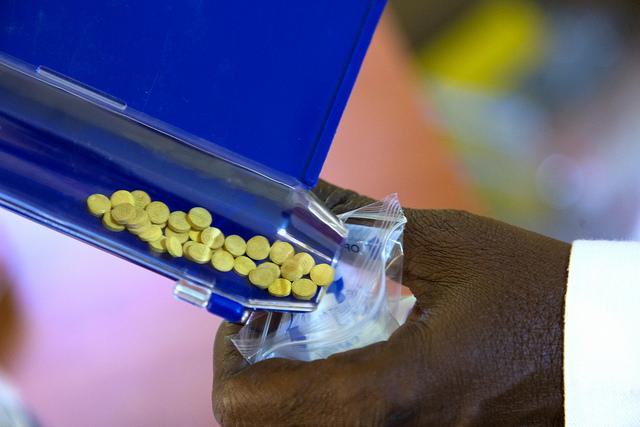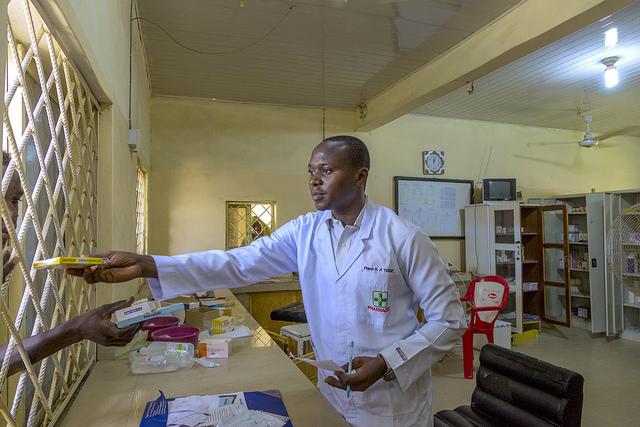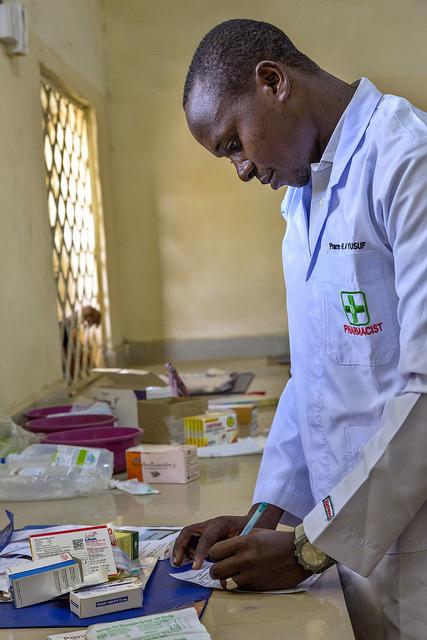[SUCCESS STORY] Inclusive Budgets: Advocacy for sickle cell treatment and prevention.
Download PERL Success Story in PDF
 |
In Kano State, citizens groups are empowered, as their voices are influencing change in government processes. This is because they are better equipped to engage with government, who, recognising the value of their involvement is imbibing principles of participatory governance.
In Nigeria, over 150,000 babies are born annually with a blood disorder, sickle cell anemia. With less than 500 Naira (around £1), sickle cell patients could buy a month’s supply of the two drugs required to help manage the disorder, but many die before the age of ten, unable to afford the required drugs.
Shema’u Adam Imam has lived with sickle cell anemia for 30 years. For as long as she can remember, she has advocated for free sickle cell treatment; embarking on fundraising activities and reaching out to politicians, individuals, public and private organisations. “I was seen as a nuisance”, she says.
 |
From 2016, “we attended several capacity building activities, facilitated by the Department for International Development (DFID) Partnership to Engage, Reform and Learn (PERL), on how civil society groups can engage government to ensure the budget reflects our needs” says Shema’u. She had not only learned that citizens could participate in the process of developing their state budget, but also that it was better to engage from an understanding of how things are done in government. “My perspective had changed and this really helped me to prepare and represent our demands for the 2018 budget”.
"It takes a lot of skill to engage with government and participate in the budget process, and for a long time, this skill was lacking amongst civil society groups in Kano” said Abdullahi Alfa, Clerk of the Kano State House of Assembly.
For the first time as a result of citizen’s involvement in the budget process, resources were allocated in the 2018 budget for sickle cell diseases management. However, resources that were earmarked, was not disbursed because of the shortfall in revenue generation. “When actual revenue is below what we expected when preparing the budget, it affects disbursement” explains Tayyib Na’abba, Director of Budget, Ministry of Planning and Budget. During the 2019 budget preparation cycle, partners learned about realistic budgeting. In each budget preparation cycle from 2017, citizens and the legislature have been actively involved in the budget process.
 |
During the 2019 budget preparation cycle, partners learned about realistic budgeting. This cycle was different because partners had a better understanding of the process, which engendered commitment to preparing a budget that all stakeholders could own and implement. Learning from low Internally Generated Revenue (IGR) performance of previous years, stakeholders reached mutual agreement to maintain revenue estimates from the fiscal projection.
"One key lesson we have learned in this year’s budgeting process is that it is in the interest of our state to have the executive, legislature and civil society come together to prepare the budget” says Abdullahi Alfa, Clerk of the Kano State House of Assembly.
The overall budget size submitted to the State House of Assembly and the final accented budget for the first time in Kano State are exactly the same. The state is continuously learning and evolving its processes to improve service delivery. It has advanced from collecting citizen’s wish lists to active engagement at every stage of budget planning and preparation. These changes are being informed by a drive to improve performance and ensure that the systems are more responsive. According to Abdullahi Alfa, Clerk of the Kano State House of Assembly, the 2019 budget preparation process was open and credible because of the commitment to ensure services are delivered and citizens’ needs are met; he expressed confidence that the 2019 budget would perform better than previous years.
For Shema’u, “It is not just enough to agree on what to spend, we all need to be sure the funds are disbursed” but her efforts are yielding gradual feats. The Kano State government in its 2019 budget allocated five million naira for the provision of free drugs for sickle cell patients. In the State, civil society groups are now well informed and are knowledgeable on how to leverage processes to influence policy and decisionmaking.
Shema’u in collaboration with other citizens groups working in the health sector are also engaging the legislature to propose a citizen’s sponsored Bill for sickle cell. The Bill will mandate premarital testing, set up testing facilities and establish genetic counselling centres. For Shema’u, this is just the beginning - her perspective has changed. PERL supports Kano State to ensure that government, citizens and the legislature engage in a participatory process to prepare realistic budget estimates.
"I am looking forward to the day when as a result of our demands, sickle cell patients in Kano will be able to walk into public hospitals and be treated free,” says Shema’u Adam Imam, says